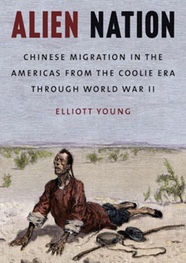The Campaign to Keep Millions of Immigrants in the Shadows Doesn't Even Stand Up to 16th Century Standards of Natural Rights

President Obama is on the verge of announcing a plan to legalize up to 5 million undocumented immigrants. Republicans have cast the move as an unprecedented and unconstitutional executive act. University of Chicago Law School professor Eric Posner has made the case that the exercise of such presidential power is in line with constitutional provisions for a separation of powers. Going back even further than the US Constitution, one can find support for Obama’s proposal in sixteenth-century notions of universal natural rights.
 Today most people believe that national sovereignty grants governments the right to determine who can and cannot enter its territory.
Today most people believe that national sovereignty grants governments the right to determine who can and cannot enter its territory.
This was not always the case. As early as the sixteenth century, the Spanish jurist Francisco de Vitoria articulated the universal principle of the right to travel and sojourn without restrictions. In the seventeenth century, political theorists began to argue that states had a right to limit entry into their territory. Anyone who crossed into another country, Samuel Pufendorf wrote, was understood to have surrendered "his natural liberty, and to have subjected himself to the sovereignty of that state."
These two views, one that recognized absolute freedom for the migrant and the other that gave the state absolute control over anyone in its territory, were extreme ends of a wide spectrum. In 1758, the Swiss jurist Emerich Vattel advocated a middle path between the right of states to exclude foreigners and the absolute right of free mobility. Although Vattel believed states had a right to limit entry of aliens into their territory, he also held that states’ rights were limited and that their power to exclude should not be abused.
With the U.S. incarcerating nearly half a million migrants every year and deporting more than that number, the government has clearly abused its power. In other words, we have veered way over to the extreme of exclusion.
This debate over the limits of national sovereignty originated in a period before passports, visas or any centralized system of migration control emerged in the early twentieth century. In the US, it was not until the anti-Coolie bill in 1861 that specific kinds of migrants, namely Chinese contract laborers, were deemed inadmissible. By 1882, Congress excluded all Chinese laborers. Thus began a wave of increasingly stricter restrictions on a variety of different people based on their national origin, class, race, gender and health.
In 1965, the Hart-Cellar Act ended the national-origins quotas of the 1920s, but it also enshrined the idea that the state had a legitimate interest in limiting migration through the selection of desirable immigrants. Rather than national origins, the post-1965 criteria were based on uniform quotas for all countries, but it also gave preferences to families with ties to the US and to those with higher skills and education. Since the 1980s, the number of migrants being jailed and deported has steadily increased and is at an all time high today.
There are not many who would advocate entirely open borders. Most people would agree that nations have a legitimate interest in keeping track of people coming into their countries and should even be able to exclude certain people like murderers, rapists and human rights violators. The problem is that this legitimate interest in excluding a few bad apples has become an excuse for excluding the entire orchard. The result has been stripping millions of people who have resided in our country for years if not decades of their basic human rights.
President Obama’s proposal to focus immigration enforcement on violent criminals and allow millions of immigrants to gain legal status is not a radical or new idea. It is a centuries old idea based in notions of universal natural rights. Surely America is a country that still holds these truths self evident.
